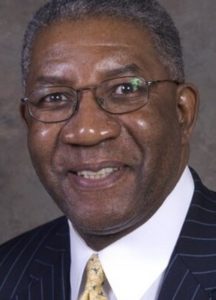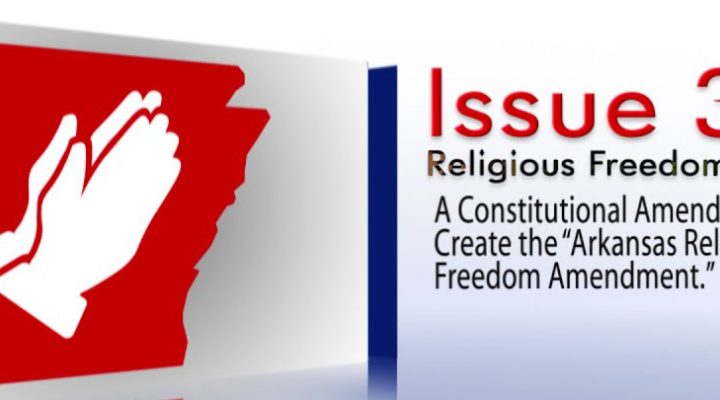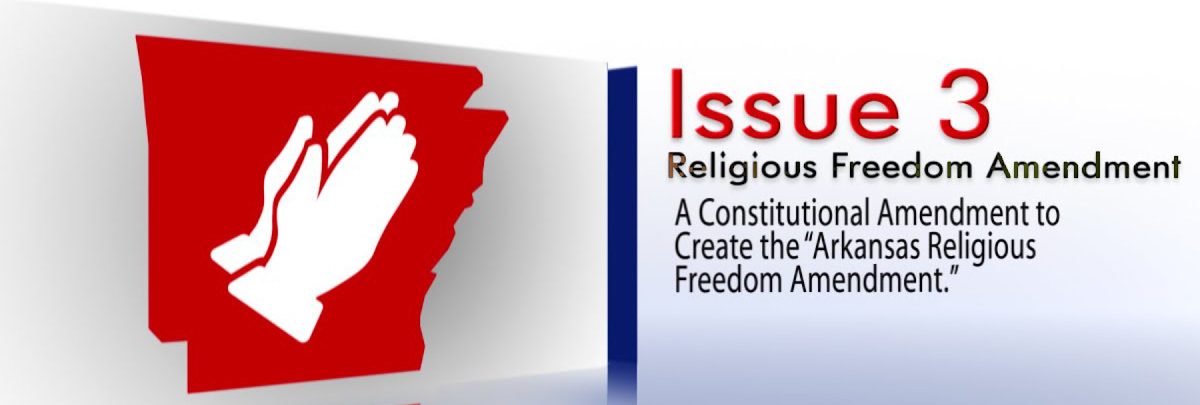Proponents of Issue 3 on Arkansas’ Nov. 8 ballot claim it will protect individual religious freedom from violation by local and state government. Opponents say it clears the way for faith-based racial and sexual discrimination.
“This is not about a genuine expression of religious freedom. It’s about sanctioning the suppression of other people’s freedom,” said Preston Clegg, pastor of Second Baptist Church in downtown Little Rock.

Preston Clegg
“I think it’s Trojan horse legislation. The stated purpose is to foster religious freedom, but we do not have a religious freedom problem in our state. Pastors and churches can say and do whatever their religion dictates to them,” he said. “What we do have in our state is a bigotry problem. This is outright oppression being given legal sanction, and I think that’s the ultimate purpose of this legislation.”
The proposed amendment to the state Constitution declares that government “may never burden a person’s freedom of religion” except in “rare” circumstances when government can establish a compelling interest and employs “the least restrictive” practices possible, according to the 2022 Arkansas Voter Guide.
The measure also provides legal recourse in courts and other government proceedings for individuals seeking relief for infringement of religious freedom.
In comments published by Ballotpedia, Arkansas Republican Rep. Mary Bentley asserted the amendment will protect state residents from abuses of religious freedom by future state leaders.

Mary Bentley
“We have executive branches come and executive branches go, and I don’t want an executive branch that changes our law. Governors have really done things to infringe on people’s religious freedoms, and I don’t want that to happen in the future,” she said.
But those concerns, as well as the amendment designed to address them, are simply unnecessary, said Wendell Griffen, an Arkansas circuit court judge and pastor of New Millennium Church in Little Rock.
“The First Amendment to the U.S. Constitution protects religious liberty. The Arkansas Constitution protects religious liberty. There is a federal Religious Freedom Restoration Act as well as an Arkansas Religious Freedom Restoration Act. Existing state and federal laws already protect religious freedom from governmental abuse.”

Wendell Griffen
Issue 3 also is “bad policy” because it does not require “substantial” proof of a burden on religious freedom resulting from government action as the existing laws do, Griffen said.
“Instead, any burden on religious liberty occasioned by governmental action would be prohibited, including governmental actions taken to protect public health, safety, and to prevent bigotry and discrimination,” he explained. “Public policies on building codes, public health regulations, and protections against discrimination would be immediate targets for legal attack if Arkansas voters pass Issue 3.”
Griffen said the amendment was placed on the ballot through the lobbying efforts of the Arkansas Family Council — the state affiliate of the Family Research Council — in response to health mandates during the COVID-19 pandemic.
“Issue 3 is also a way religious bigots can undermine public policies that prevent discrimination based on race, sex, sexual orientation and gender identity,” he warned. “Beyond that, Issue 3 would hinder private employers from maintaining anti-discrimination policies.”
Griffen said he is urging his fellow citizens to oppose the amendment. “Religious freedom should never be a license for anarchy, bigotry and discrimination. Hence, I call Issue 3 the ‘Arkansas Religious Anarchy Amendment.’”
The measure essentially allows an individual to claim a violation of personal religious freedom without ever having to prove that it has, Clegg said. “Someone can say ‘LGBTQ folks and their behavior is against my religion.’ So what it does is remove statutory protections for LGBTQ and other people.”
Clegg also pointed to the fact that Arkansas has no laws against hate crimes, even after a recent effort to pass such legislation. “People here are afraid that amounts to favoritism for one group. We’re in a state where we consider protecting vulnerable people as giving them privilege.”
The mood of supporters of Issue 3 was summed up during a recent local school board meeting, he said. “Someone read from Romans 1 about God giving people over to their ‘reprobate minds’ and death language aimed at LGBTQ people. That is of concern to me.”
Opponents of the amendment are typically branded as being anti-faith, he added. “I don’t see anything good in this legislation. But when you say that, people assume you have something against religious liberty because that’s the lingo attached to this amendment.”
The fact is that religious liberty and concern for marginalized people are expressions of a Christ-like faith, he said. “I am a convictional Baptist. I believe in the Baptist pillars of faith, one of which is religious liberty and separation of church and state.”
Related articles:
Neither democracy nor religious freedom are biblical concepts, John MacArthur declares
Does landmark religious freedom legislation need a fix or is it fine as is? | Analysis by Mark Wingfield


